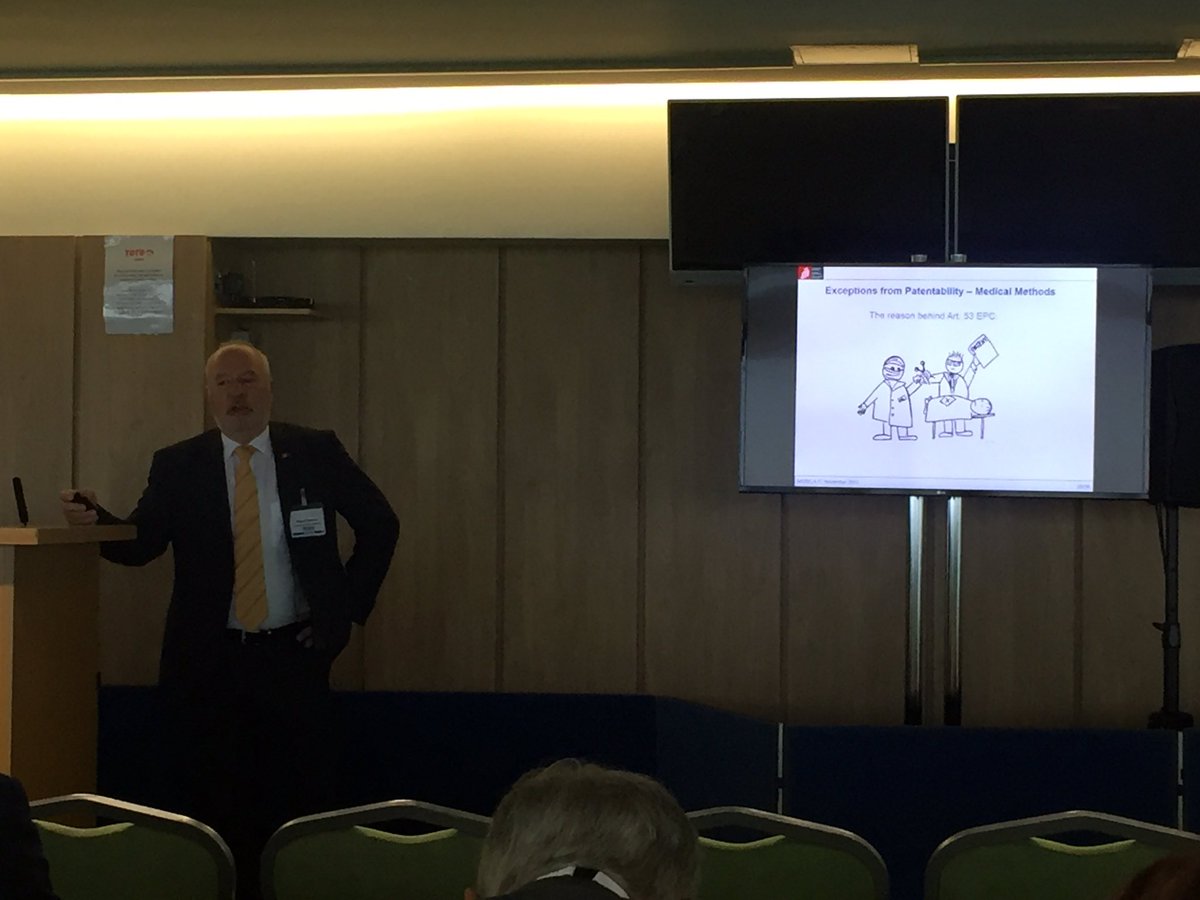

Photo credit: Keltie Irelandââ¬Â
"The EPO has already associated itself with all sorts of nefarious entities."Earlier today the EPO was propping up this greenwashing tweet, just shortly after we had explained the 'logic' behind it (it's purely marketing). But that's not the worst part.
The worst part is probably EPO choosing to retweet not one but two (the following day) bits of nonsense from IP Europe, which is a nefarious front group that promotes patent extremism (we wrote many articles about it over the years, even a week ago). They promote an EPO lie. It is being retweeted by EPO communications staff as though they coordinate these lies. Is the EPO in the bar again? The EPO is retweeting Twitter accounts which suggest that it's deeply in bed with truly corrupt lobbying groups. Appalling to say the least. They even use the same hashtags as the EPO, e.g. "SMEmanifesto".
"They also link to a "case study" of the EPO, pinging patent maximalists such as Rubén Bonet.""How #SMEs across Europe use patents to their advantage," they say, but the examples given are purely propaganda, where patent trolls are being framed as "SMEs". They also link to a "case study" of the EPO, pinging patent maximalists such as Rubén Bonet.
The EPO itself posted additional things about it. "How can SMEs unlock the untapped value of their IP? Read 12 case studies of European SMEs," it said. Which 12 case studies? Not what people might expect. It wrote about an "Irish #startup [that] established itself as a global leader in the hospital sector thanks to its #IPstrategy" (interesting timing given the latest news from Ireland, which walks away from the UPC).
As someone explained in a comment yesterday, "European SMEs under the UPC will [be] faced [with] increased pressure" as it's them who would suffer the most. Here is the comment in full:
Let us be clear, the companies that stand to benefit from the UPC will be those that: are well resourced; have commercial operations in numerous EU Member States; and operate in an area of technology where enforcing patents (or "clearing the way" / defending infringement suits) is an important part of doing business.
It is perfectly possible that some SMEs might see the UPC as an opportunity to “move up to the big league”, and may therefore be optimistic about the system.
On the other hand, those SMEs that (choose to) remain small, or operate in only a small number of countries, have every reason to fear the advent of the UPC. It is simply not designed for them. Indeed, some features of the Unitary Patent Package, such as the EUR20k fee for an invalidity defence and changes to jurisdiction (ie ultimately giving the UPC exclusive jurisdiction over all EPs), could prove to be a nightmare for those SMEs that do not have the pockets (or the stomach) to “play with the big boys”.
This is where I think that politicians involved in this project have wildly miscalculated. That is, they seem to have assumed that all (or most) SMEs will seize the opportunity the UPC offers to expand their horizons. However, my experience leads me to believe that both practical and psychological factors will lead to only a relatively low percentage of SMEs taking this route.
Then there is the thorny issue of what happens to SMEs that are only in the embryonic stage that are hit with an infringement suit at the UPC. What will be the survival rate of such SMEs? Will it be higher or lower than at present? As far as I can see, the clear answer is that the survival rate will go down.
So the lessons are clear. European SMEs under the UPC will faced increased pressure to either grow (quickly) or get lucky (ie avoid actions at the UPC) to survive. We shall just have to wait to see how SMEs respond to such “evolutionary pressure”... but the overall prognosis looks far from promising at present.
"The EPO will probably continue down this route, which leads neither to the UPC (a failed project) nor growing "demand" for "products" at the EPO."Keltie Irelandââ¬Â (based in Galway) wrote today: "Miguel Herrera of the European Patent Office @EPOorg explaining what can and cannot be patented in Europe @MedicalTechIre #medtech #patents pic.twitter.com/UEQEN3jZQb"
"It does not matter what the European authorities say," I responded, as the "EPO enables patents on anything. Quality dead."
The EPO will probably continue down this route, which leads neither to the UPC (a failed project) nor growing "demand" for "products" at the EPO. Battistelli has truly ruined the Office. He also alienated stakeholders, not just his staff. ⬆